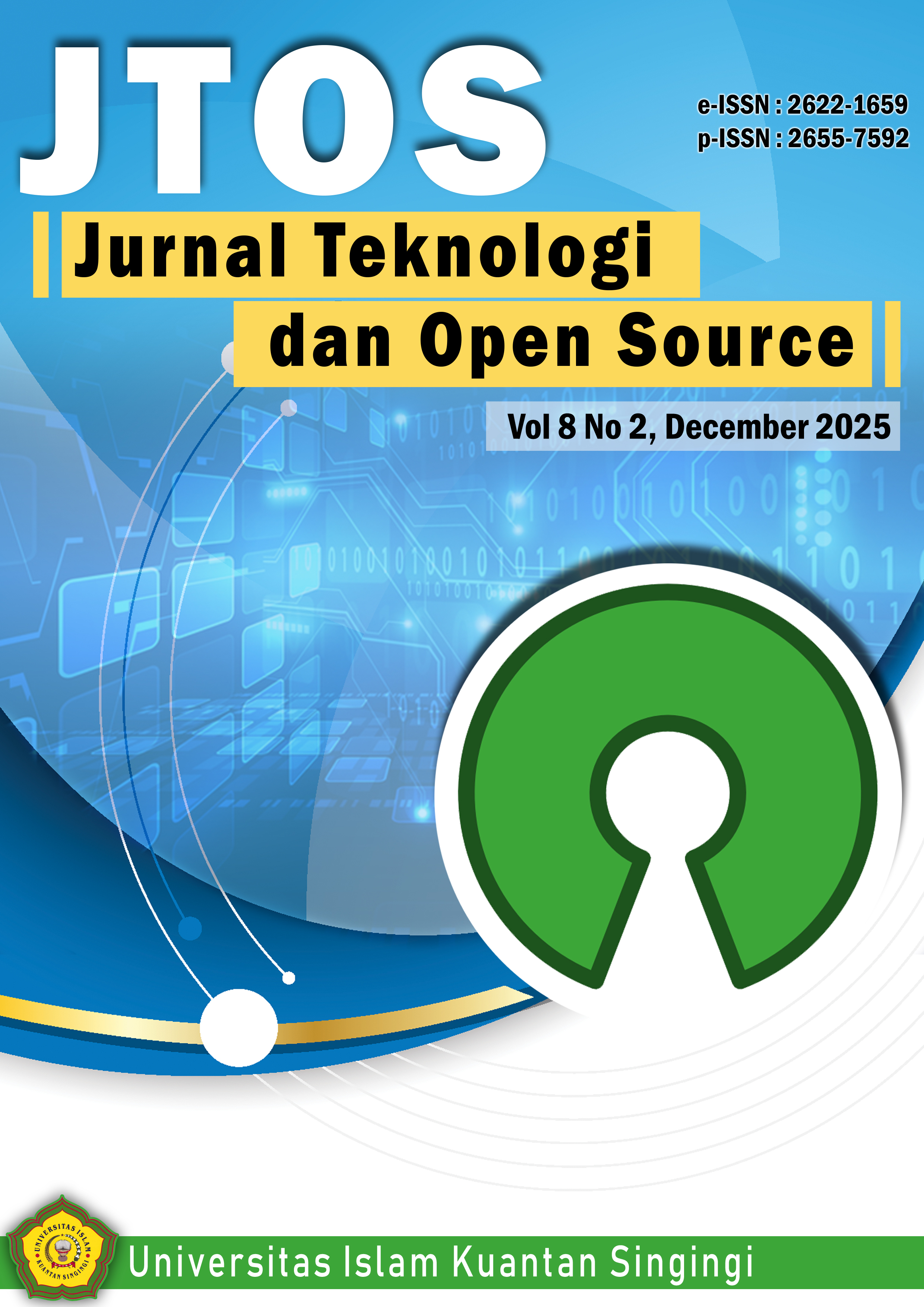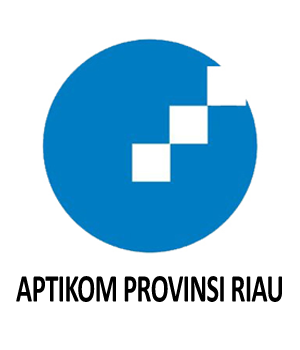Factors Influencing the Acceptance of Ferizy E-Ticketing Application Based on UTAUT2 Model
Abstract
The advancement of information technology has accelerated digital transformation in many sectors, including maritime transportation. One notable result of this transformation is the development of the Ferizy application, an online ticket booking platform introduced by PT ASDP Indonesia Ferry. Despite its innovation, users continue to encounter technical challenges and insufficient access to information. User feedback has highlighted issues such as incomplete information and booking process errors. This research aims to explore the factors influencing the acceptance of the Ferizy application by applying a modified UTAUT2 model. The study incorporates two additional variables, Trust and Word of Mouth, into the UTAUT2 framework. A quantitative research methodology was employed, using SEM-PLS analysis on initial data collected from 522 Ferizy users, which was later refined to 442 valid responses. The analysis demonstrated that Word of Mouth and Price Value have a significant impact on users' Behavioral Intention, which, in turn, strongly influences actual Use Behavior. On the other hand, variables such as Effort Expectancy, Facilitating Conditions, Performance Expectancy, Social Influence, and Trust were found to have no significant effect on Behavioral Intention. These results offer valuable insights for both users and developers, enhancing the understanding of the factors that influence the acceptance of the Ferizy platform.
Downloads
References
. V. Venkatesh, J. Thong, and X. Xu, “Consumer Acceptance and Use of Information Technology: Extending the Unified Theory of Acceptance and Use of Technology,” MIS Quarterly, vol. 36, no. 1, pp. 157–178, 2012. doi:10.2307/41410412.
. E. M. Rogers, Diffusion of Innovations, 5th ed., New York: Free Press, 2003. doi:10.4324/9780203710753.
. R. Agarwal and E. Karahanna, “Time flies when you’re having fun: Cognitive absorption and beliefs about information technology usage,” MIS Quarterly, vol. 24, no. 4, pp. 665–694, 2000. doi:10.2307/3250951.
. T. Zhou, Y. Lu, and B. Wang, “Integrating TTF and UTAUT to explain mobile banking user adoption,” Computers in Human Behavior, vol. 26, no. 4, pp. 760–767, 2010. doi:10.1016/j.chb.2010.01.013.
. F. D. Davis, “Perceived Usefulness, Perceived Ease of Use, and User Acceptance of Information Technology,” MIS Quarterly, vol. 13, no. 3, pp. 319–340, 1989. doi:10.2307/249008.
A. B. Jang and S. R. Koh, “The Effects of Trust and Perceived Risk on Intention to Use E-Ticketing Services,” Journal of Internet Banking and Commerce, vol. 21, no. 2, pp. 1–14, 2016. doi:10.1007/s10257-017-0335-z.
. J. Gefen, D. Straub, and M. Boudreau, “Structural Equation Modeling and Regression: Guidelines for Research Practice,” Communications of the Association for Information Systems, vol. 4, pp. 1–70, 2000. doi:10.17705/1CAIS.00407.
. P. Pavlou, “Consumer acceptance of electronic commerce: Integrating trust and risk with the technology acceptance model,” International Journal of Electronic Commerce, vol. 7, no. 3, pp. 101–134, 2003. doi:10.1080/10864415.2003.11044275.
. M. García De Blanes Sebastián, A. Azuara Grande, and J. R. Sarmiento Guede, “Understanding the use of travel and restaurant platforms through the UTAUT2 model,” Br. Food J., vol. 126, no. 2, pp. 774–794, Jan. 2024, doi: 10.1108/BFJ-07-2023-0636.
. Kompas.com, “ASDP Luncurkan Aplikasi Ferizy untuk Pembelian Tiket Kapal,” [Online]. Available: https://www.kompas.com/, accessed: Jan. 12, 2024.
. NewsRepublika.id, “Pengguna Keluhkan Error pada Aplikasi Ferizy,” [Online]. Available: https://www.newsrepublika.id/, accessed: Feb. 5, 2024.
. Adatah.id, “Calo Marak karena Aplikasi Error,” [Online]. Available: https://www.adatah.id/, accessed: Jan. 21, 2024.
. PT ASDP Indonesia Ferry, “Profil Perusahaan dan Inovasi Digital,” 2023. [Online]. Available: https://asdp.id.
. T. Ramayah, J. W. C. Yeap, and M. N. Suki, “User Acceptance of Online Ticketing: A Malaysian Perspective,” International Journal of Business and Society, vol. 17, no. 2, pp. 179–192, 2016. doi:10.1016/j.ijbs.2016.06.007.
. J. Wirtz, and P. Chew, “The Effects of Incentives, Deal Proneness, Satisfaction and Tie Strength on Word-of-Mouth Behaviour,” International Journal of Service Industry Management, vol. 13, no. 2, pp. 141–162, 2002. doi:10.1108/09564230210425340.
. G. J. Tellis, “Effective Advertising: Understanding When, How, and Why Advertising Works,” Sage Publications, 2003. doi:10.4135/9781452204324.
. Y. K. Dwivedi, M. D. Williams, and V. Lal, “Consumer Adoption of Mobile Payment Services in India: Extending UTAUT2 with Personal Innovativeness, Anxiety, and Trust,” Journal of Retailing and Consumer Services, vol. 49, pp. 42–52, 2019. doi:10.1016/j.jretconser.2019.03.009.
. R. A. Razaqi, “Faktor-Faktor yang Mempengaruhi Penerimaan Aplikasi E-Ticket ‘Ferizy’ Berdasarkan Model UTAUT2,” Skripsi, UPN Veteran Jawa Timur, Surabaya, 2024.
. S. Taylor and P. A. Todd, “Understanding Information Technology Usage: A Test of Competing Models,” Information Systems Research, vol. 6, no. 2, pp. 144–176, 1995. doi:10.1287/isre.6.2.144.
. T. H. Davenport and L. Prusak, Working Knowledge: How Organizations Manage What They Know, Harvard Business School Press, 1998.
. V. Venkatesh, M. G. Morris, G. B. Davis, and F. D. Davis, “User acceptance of information technology: Toward a unified view,” MIS Quarterly, vol. 27, no. 3, pp. 425–478, 2003. doi:10.2307/30036540.
A. Parasuraman, V. A. Zeithaml, and L. L. Berry, “A conceptual model of service quality and its implications for future research,” J. Mark., vol. 49, no. 4, pp. 41–50, 1985. doi:10.2307/1251430.
. H. H. Bauer, T. Reichardt, S. J. Barnes, and M. Neumann, “Driving consumer acceptance of mobile marketing: A theoretical framework and empirical study,” J. Electron. Commer. Res., vol. 9, no. 3, pp. 181–192, 2005.
. N. A. Alalwan, Y. K. Dwivedi, and M. D. Williams, “Customers’ intention and adoption of telebanking in Jordan,” Information Systems Management, vol. 31, no. 2, pp. 154–178, 2014. doi:10.1080/10580530.2014.890432.
. H. Lin and Y. H. Wang, “An examination of factors influencing consumer adoption of mobile payment services,” International Journal of Mobile Communications, vol. 3, no. 4, pp. 373–392, 2005. doi:10.1504/IJMC.2005.007021.
Copyright (c) 2025 Imam Arizal Razaqi

This work is licensed under a Creative Commons Attribution-ShareAlike 4.0 International License.
This is an open-access article distributed under the terms of the Creative Commons Attribution-ShareAlike 4.0 International License which permits unrestricted use, distribution, and reproduction in any medium. Users are allowed to read, download, copy, distribute, search, or link to full-text articles in this journal without asking by giving appropriate credit, provide a link to the license, and indicate if changes were made. All of the remix, transform, or build upon the material must distribute the contributions under the same license as the original.















